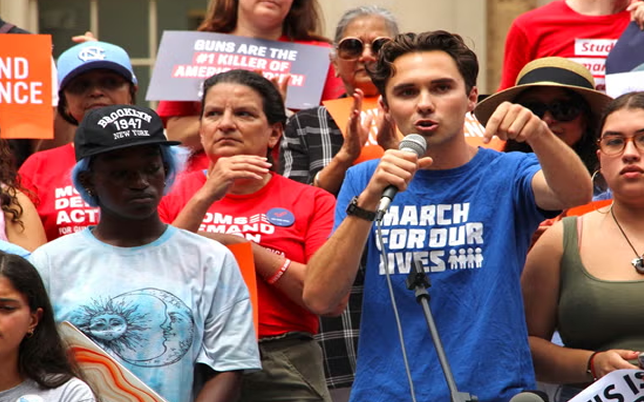Two Courtrooms, One Generation: Youth Climate Plaintiffs Rise in California and Alaska to Defend Their Constitutional Rights
Last week in Los Angeles, the wind outside a young woman’s home reached nearly 60…
Death, Doubt, and the Machinery of Execution: Why the Fight Over Alabama and Florida’s Death Row Cases Matters Now
The death penalty in America is not a static policy debate. It is a living…
SafariLIVE Sunrise, SafariLIVE Sunset, and immersive “LIVE at the waterhole” broadcast
There is something transformative about watching wildlife in real time. The stillness of a waterhole…
Creamy Roasted Butternut Squash Soup: A Silky, Caramelized Fall Classic That Feels Elegant but Couldn’t Be Easier
There are soups you make because they’re practical, and then there are soups you make…
Solar Power’s Newest Friends: MAGA Influencers, Conservative Media, and the Surprising Realignment of America’s Clean Energy Politics
For more than a decade, solar energy has been framed as a partisan dividing line…
Crunchy Kale Chips: The Ultimate Plant-Based Snack for Bone Health, Energy, and Clean Crunch Satisfaction
When cravings hit, they rarely ask for something nutrient-dense. They ask for salt, crunch, and…
Get Involved, Do Something


PRIVATE PRISONS.
Private prisons, like many other publicly traded companies, have their value determined by a variety of factors, with the number of occupants being a significant one. The business model of private prisons revolves around incarcerating individuals on behalf of government agencies, primarily at the state and federal levels, in exchange for a per diem or monthly fee per inmate.
The number of occupants, or inmates, directly impacts the revenue generated by private prisons. Higher occupancy rates mean more revenue, as each inmate represents a source of income for the company. Therefore, from a financial standpoint, private prison operators aim to maximize occupancy levels to optimize their revenue streams.
From a trading perspective on Wall Street, investors closely monitor metrics such as occupancy rates when evaluating the performance and potential value of private prison stocks. Higher occupancy rates often signal strong financial performance and growth potential, which can drive up the stock price and attract investors.





Two Courtrooms, One Generation: Youth Climate Plaintiffs Rise in California and Alaska to Defend Their Constitutional Rights
Last week in Los Angeles, the wind outside a young woman’s home reached nearly 60…
Death, Doubt, and the Machinery of Execution: Why the Fight Over Alabama and Florida’s Death Row Cases Matters Now
The death penalty in America is not a static policy debate. It is a living…
SafariLIVE Sunrise, SafariLIVE Sunset, and immersive “LIVE at the waterhole” broadcast
There is something transformative about watching wildlife in real time. The stillness of a waterhole…
Creamy Roasted Butternut Squash Soup: A Silky, Caramelized Fall Classic That Feels Elegant but Couldn’t Be Easier
There are soups you make because they’re practical, and then there are soups you make…
Solar Power’s Newest Friends: MAGA Influencers, Conservative Media, and the Surprising Realignment of America’s Clean Energy Politics
For more than a decade, solar energy has been framed as a partisan dividing line…
Crunchy Kale Chips: The Ultimate Plant-Based Snack for Bone Health, Energy, and Clean Crunch Satisfaction
When cravings hit, they rarely ask for something nutrient-dense. They ask for salt, crunch, and…
Trump Delayed a Global Carbon Tax. Now He Wants to Finish the Fight — Inside the Battle Over a Climate Fee on Global Shipping
The fight over climate accountability has moved from smokestacks and tailpipes to the open ocean….
Strong and Resilient: Nikola’s Story Continues at LIONSROCK — A Testament to Sanctuary, Survival, and the Power of Lifelong Care
In the world of wildlife rescue, survival is only the beginning. True success is measured…
The BEST Mexican Street Corn (Elote Recipe): Smoky, Creamy, Tangy Street-Food Magic You Can Make at Home
There are recipes that quietly live in your rotation, and then there are recipes that…
Homeless Dog Pretended to Be Tough — But an X-Ray Revealed the Truth: Mario’s Rescue and the Urgent Reality of Street Survival
On the streets, weakness can be fatal. For stray dogs, survival depends on appearing strong,…
Hunger as Punishment: How States Restrict SNAP Benefits for People on Probation — And Why Food Should Never Be a Tool of Control
In the United States, punishment does not always end at sentencing. For many people placed…
Then vs. Now: Runa & Kodi — From Orphaned Cubs in Ukraine to Thriving Brown Bears at BEAR SANCTUARY Domazhyr
Last April, in the remote wilderness of Ukraine, two tiny brown bear cubs were found…
Eat Like a Baddie at B.A.D. Gyal Vegan: How One Atlanta Restaurant Is Turning Plant-Based Power Into a Cultural Movement
In a city celebrated for bold flavors and unapologetic creativity, one vegan restaurant is redefining…
Assemblyman Joe Danielsen Calls for Immediate Divestment From GEO Group — A Defining Moment for New Jersey’s Public Pension Ethics and Private Prison Accountability
New Jersey is once again at the center of a national reckoning over private prisons,…
Federal Safety Regulator Warns His Office Can’t Keep Up With Trump’s Alaska Oil Push — What It Means for Climate, Oversight, and the Future of U.S. Energy Policy
The collision between aggressive fossil fuel expansion and a downsized federal workforce is no longer…
What to Do With an Old Fur Coat, The Truth About Shearling, and Why Animal-Derived Fashion Is Facing Its Final Reckoning
The fashion industry is undergoing a profound ethical reset. Once considered symbols of luxury and…
#FloraToFELIDA: Rescuing a Fragile Tigress from Argentina to Lifelong Sanctuary at FELIDA
The wait is nearly over. https://www.youtube.com/watch?v=KW6psF8DJkQ Flora — the smallest and most medically fragile tigress…
Crispy Roasted Chickpeas: The Ultimate Oven Method for Golden, Crunchy, High-Protein Perfection
If your roasted chickpeas have ever turned out chewy, soft, or strangely disappointing, this method…
Spinach Banana Smoothie: The Ultimate Easy Green Smoothie for Busy, Healthy Mornings
If you’ve ever wanted a way to eat more greens without actually tasting them, this…
Easy Pico de Gallo Recipe: Fresh, Authentic, Oil-Free Flavor in Minutes
If you’ve ever searched for how to make authentic pico de gallo at home, the…







































